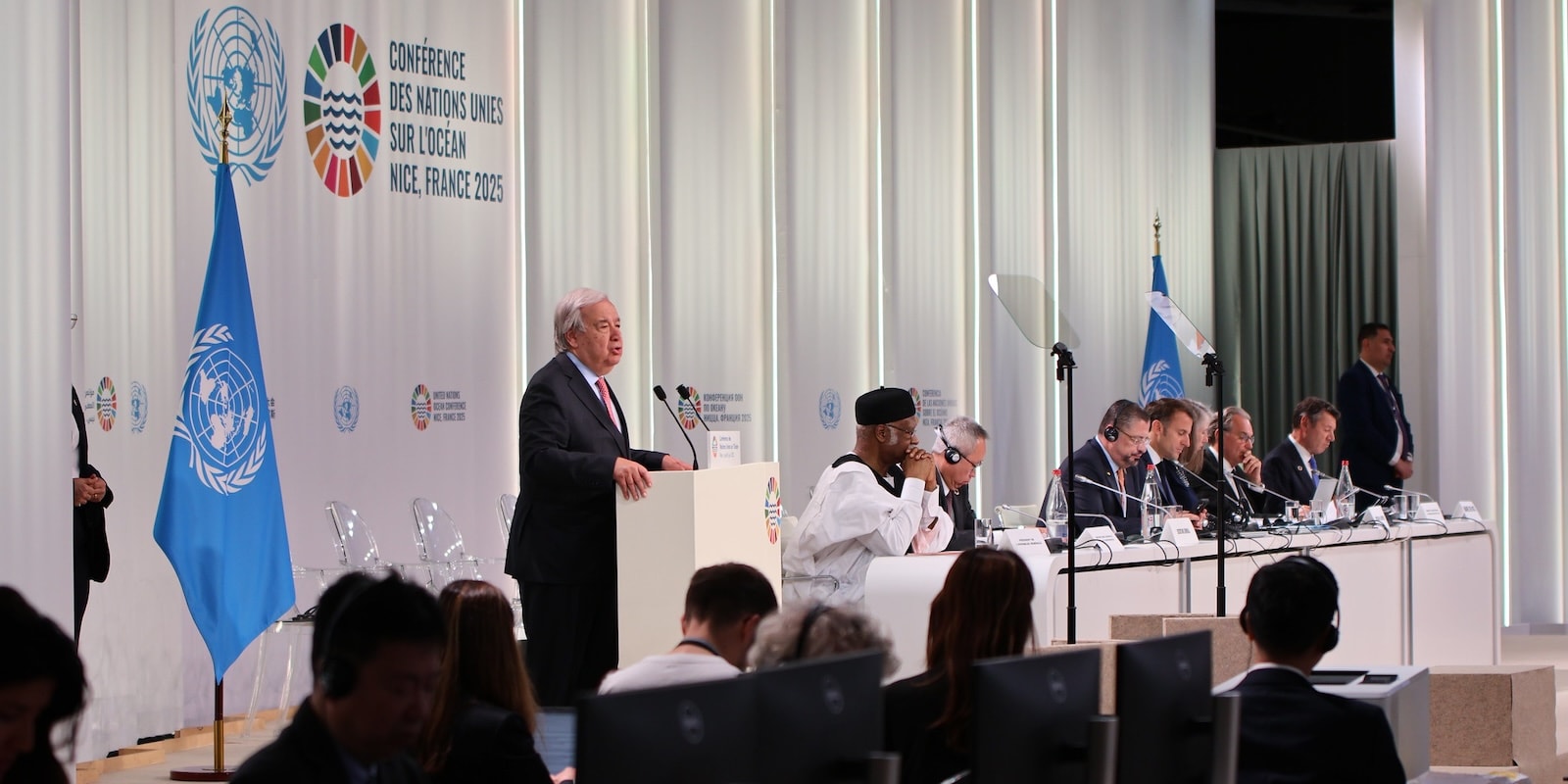Tuesday, June 17, 2025
The event, which brought together world leaders, NGOs, and other actors in Nice, France, promoted the Biodiversity Protection Treaty on International Waters (BBNJ), also known as the Oceans Treaty or High Sea Treaty, and left several initiatives seeking to protect more specific areas or reduce water pollution.
The United Nations Conference on the Oceans (UNOC) resulted in a treaty that strengthens the protection of what are known as international waters, which are located more than 200 nautical miles (just over 370 kilometers) from the coast. So far, it has been signed by more than 50 countries, although 60 are needed. So work is continuing to secure the remaining signatures in the coming months so that the document can enter into force on January 1, 2026.
Furthermore, the Nice Final Declaration has set out in writing the commitment of countries to combat, among other things, ocean pollution, to which they added combating the effects of climate change and designating new marine protected areas. In fact, with the goal of protecting 30% of the ocean by 2030, new areas were designated during the conference, bringing the existing percentage from 8.4% to 11%.
In addition, 35 countries, including the 27 from the European Union, have joined the High Ambition Coalition for a Silent Ocean, an initiative led by Panama and Canada to reduce underwater noise pollution.
Moreover, during the conference, the Interparliamentary Coalition for Ocean Protection (ICOP) emerged, a meeting of 250 parliamentarians from around the world who will promote legislative initiatives in their territories to protect these ecosystems.
SUMMARY: "Now is the time to urgently deliver for the ocean" (Peter Thomson, United Nations Secretary-General for the Oceans)
On the first day of the conference, the "Ocean Action Plan 30x30" report was presented, prepared by several organizations with the support of the United Nations Environment Programme (UNEP) and the International Union for Conservation of Nature (IUCN). The goal is for governments and stakeholders to work together to increase protection. The Special Envoy of the Secretary-General of the United Nations for the Oceans, Peter Thomson, explained that there were five years to "properly" execute the plan: "We know what works. We know who is leading. We know where support is needed. Now is the time to act urgently on the oceans."
They were not the only requests during the first day. At the inauguration, UN Secretary General António Guterres called for a change in the way we relate to marine biodiversity. "Without a healthy ocean, there cannot be a healthy planet."
In a similar line, the president of Costa Rica, Rodrigo Chaves, expressed that protecting the ocean is "a historical emergency," an ethical task of "rational humans": "There is only one ocean that unites us all, nourishes us all, and also regulates the global climate," he argued. For the leader, "protecting this resource, this immense ocean, is not an ideological or diplomatic option," he added. Along these lines, Costa Rica requested 100 billion dollars in financing for the sustainable development of the oceans.
Country proposals
The countries and organizations launched their proposals during the week. One of the first was Brazil: at the opening day, it presented the Challenge of Blue NDC, which asks the states to put the ocean at the center of their climate plans before the COP30 in Belém, which is held in November in this city in the Brazilian Amazon. Solutions to put the oceans at the center of climate policies can involve creating intelligent protected areas or supporting sustainable fishing and aquaculture. Among the countries that have already joined are Australia, Kenya, Mexico, and Fiji.
Spain, on the other hand, announced five new protected areas on the country's coast, which will increase the protected area to 25.7% (the commitment is to reach 30% by 2030). It also pledged its support for the Blue Cooperation Fund for the Mediterranean, being the main contributor with 8.5 million euros.
Meanwhile, the European Union (EU) announced a plan for the oceans with €1 billion (approximately $1.152 billion) and that would provide a common framework for TWNs for maritime policies and ocean conservation. Future conferences will have to continue advancing economic objectives, as well as delving into political and business commitments, to preserve essential ecosystems in the life of the planet.
¿Te ha parecido interesante?





